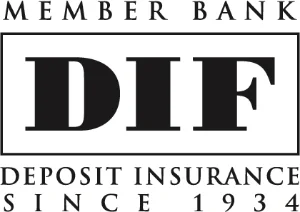Maybe you’ve heard about the new twist on the Microsoft scam. It used to be that an individual would get a call from someone pretending to be from Microsoft trying to get access to that person’s computer.
Lately, from what we’re hearing, the scammer calls and actually tries to build their credibility by saying, “I didn’t ask you for your credit card.”
Red alarms should be flashing there anyway. Computer companies never call you when you have a problem. Getting a call from anyone claiming to be from a computer company should definitely have you thinking, “Something’s not right here.”
Watching for a “Something’s not right here” moment in any situation involving a stranger could save a lot of people from being scammed. Especially young people who are scammers’ newest favorite target, possibly because many are just starting out and may be perceived to be more trusting.
According to a recent report in a Boston newspaper, a young woman from New Jersey was trying to line up a rental before starting a new job in the city. “A girl messaged me on Facebook saying she had a room,” the victim said.
Because this Facebook stranger “sounded genuine when she said there was a rush because others were interested,” the victim signed the lease from New Jersey and wired $1500 to the “supposed real estate agent.”
When the victim got to Boston, she discovered the address was someone’s house. But there was no room for rent there. Unfortunately, she fell for a classic scam.
Being too trusting cost a Bruce Springsteen fan more than $11,000 when they believed they were corresponding on Facebook with Springsteen who claimed he “needed money.” That had “something’s not right here” written all over it.
But being suspicious probably saved a local man from having his house robbed. He told me he’d listed a boat for sale on Craigslist and it really got his attention when several people emailed asking, ”When won’t you be home? I don’t want to come by then.”
“Something wasn’t right with that,” he said. “I thought a genuine buyer would want to know when I would be home – not when I wouldn’t be.” Exactly.
Here’s another scam we’re hearing about: A person loses their wallet and gets a call from someone who says, “If you’ll just tell me your debit card pin number, that will confirm you’re the owner of this wallet.”
Something’s not right there! No one needs your debit card pin number to confirm your identity. That is not a Good Samaritan – it’s a thief. Some people believe bank insurance covers the loss from being tricked into giving a thief their debit card pin number. But that’s not true. Bank insurance protects depositors from bank failures, not theft from individuals’ accounts.
Speaking specifically about being asked to cash a check for a stranger who’ll let you keep some of the money for your trouble – another classic scam – local consumer reporter Susan Wornick has said that you make it your lucky day when you spot a scam and walk away. She’s right.
When it comes down to it, you are your own best defense against being scammed. You could be approached by phone, mail, email, social media or in person. It happens all the time to everyone. How can you protect yourself?
First, in any uncomfortable situation, ask yourself, “Is a stranger involved?” That alone should get your attention. If they’ve said something alarming or they’re rushing you or asking for money (including cash, gift cards, prepaid debit cards or wire transfers), that should always be a sign to be very wary.
Guard your money as well as your personal and financial information. And when you have the feeling that “something’s not right here,” always feel free to talk with your local police or your bank. After the fact, filing a report is often all that can be done. But the police or your bank would be absolutely delighted if they could help keep you from being scammed in the first place.
Nick Maffeo is the President & CEO of Canton Co-operative Bank in Canton. “Smart About Money” is a regular column he writes for the Canton Citizen. Have a financial question you’d like to ask? Email to info@cantoncoopbank.com.


